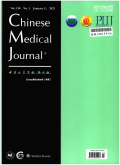Breast cancer immunology and immunotherapy: targeting the programmed cell death protein-1/programmed cell death protein ligand-1
Breast cancer immunology and immunotherapy: targeting the programmed cell death protein-1/programmed cell death protein ligand-1
摘要Historically, breast cancer has been regarded as an immunogenic "cold" tumor. However, the discovery of immune checkpoint inhibitors has made immunotherapy becoming an emerging new treatment modality for breast cancer. This review discusses the immune system, immune features of breast cancer, and the programmed cell death protein-1/programmed cell death protein ligand-1 (PD-1/PD-L1) inhibitors used in the treatment of breast cancer. High T lymphocyte infiltration and mutation burden were observed in triple-negative breast cancer and human epidermal growth factor receptor 2 positive breast cancer. Increasing breast cancer immunogenicity and modulating the tumor microenvironment has been reported to improve the therapeutic efficacy of immunotherapy. Recent clinical trials involving PD-1/PD-L1 inhibitors monotherapy in breast cancer has revealed little efficacy, which highlights the need to develop combinations of PD-1/PD-L1 inhibitors with chemotherapy, molecularly targeted therapies, and other immunotherapies to maximize the clinical efficacy. Collectively, the immunotherapy might be a promising therapeutic strategy for breast cancer and several clinical trials are still on-going.
更多相关知识
abstractsHistorically, breast cancer has been regarded as an immunogenic "cold" tumor. However, the discovery of immune checkpoint inhibitors has made immunotherapy becoming an emerging new treatment modality for breast cancer. This review discusses the immune system, immune features of breast cancer, and the programmed cell death protein-1/programmed cell death protein ligand-1 (PD-1/PD-L1) inhibitors used in the treatment of breast cancer. High T lymphocyte infiltration and mutation burden were observed in triple-negative breast cancer and human epidermal growth factor receptor 2 positive breast cancer. Increasing breast cancer immunogenicity and modulating the tumor microenvironment has been reported to improve the therapeutic efficacy of immunotherapy. Recent clinical trials involving PD-1/PD-L1 inhibitors monotherapy in breast cancer has revealed little efficacy, which highlights the need to develop combinations of PD-1/PD-L1 inhibitors with chemotherapy, molecularly targeted therapies, and other immunotherapies to maximize the clinical efficacy. Collectively, the immunotherapy might be a promising therapeutic strategy for breast cancer and several clinical trials are still on-going.
More相关知识
- 浏览122
- 被引11
- 下载32


相似文献
- 中文期刊
- 外文期刊
- 学位论文
- 会议论文



 换一批
换一批 换一批
换一批



